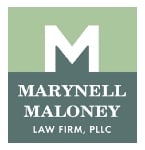Most Texas nurses would agree that their careers can be rewarding yet challenging at the same time. If a particular hospital ward has many full beds, a nurse’s duties can be stressful. Whether a nurse is tending to one patient or several, she is obligated to adhere to stringent protocol and accepted safety standards that help to prevent nursing negligence, especially regarding administering medication.
A nurse should check and double-check
Medications may be given to a hospital or nursing home patient for any number of reasons. Not all medications are compatible; in fact, interaction between drugs can create a life-threatening risk in some cases. A licensed nurse understands the importance of caution and clarity when preparing to administer medication to a patient. Most nurses use a system commonly referred to as “the five Rs” to keep patients safe.
Each R helps reduce the risk of medication errors
Before a nurse gives medication to a patient, he or she should first confirm that the person in question is the correct patient who is supposed to receive the medication. In a hospital setting, patient names might be similar or other confusion may arise that causes one patient to be misidentified as another. A nurse knows that this simple step helps avoid potentially lethal errors. Nurses must make sure they are administering the proper medication, in the right dosage, at the right time and by the correct route (topically, orally or intravenously).
If a medication error results in injury to a patient
If a Texas medical patient or nursing home resident suffers injury because of nursing negligence, he or she may seek compensation for damages by filing a legal claim in a civil court. To prove such a claim, a plaintiff must provide evidence to show that negligence occurred and that it was a direct cause of injury. If a medication injury was fatal, an immediate family member of a deceased patient may take legal action on his or her behalf.
